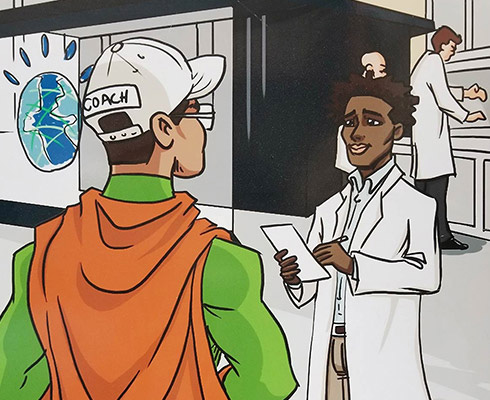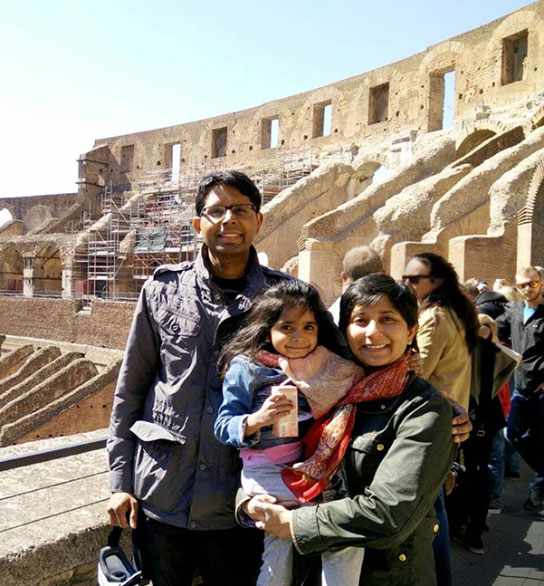What are you most proud of?
When I joined IBM 17 years ago after completing my post-doc, I performed research on high-k/metal gate materials, innovating at the nanoscale to incorporate these new materials into the core of the transistor, the engine that drives the computer. The objective was to enable faster computers at lower power. After more than a decade of research and development, these novel materials were incorporated into IBM’s servers and some of the world’s most respected brands of smartphones and tablets.
In the early days of this research, my team chose a path that others did not, one we strongly believed in. It didn’t mean we would always succeed, but that’s the risk you have to take to get to where you want to go. This decision ultimately helped us to develop and deliver materials for mobile devices faster than other industry peers.

“Our team chose a path that others did not, but it was a path we strongly believed in.”
What are you most passionate about?
My “passion project” at IBM has been a class curriculum I developed to train researchers to communicate effectively with non-technical audiences without slides. I see it happen all the time. It’s not that people give the wrong information, they often just don’t know how to get the information across to the right audience at the right level. It’s such an important skill, but not easy to do and definitely not commonly taught in our PhD programs. A colleague and I created a one-day course for IBMers. To date, we have trained more than 300 researchers across multiple states and empowered course graduates to deliver the program to others. It’s extremely rewarding for me, but also for other researchers.

Who has been the greatest influence in your life?
My father. He has been a role model to me my whole life given his strength of character and work ethic. He had an illustrious career in the Indian civil service, held the role of India’s National Security Advisor and recently completed a second act as the governor of a state in India. He has the innate ability to bring out the best in people and to help others, while remaining extremely passionate and relentless in pursuing excellence. His actions and clarity of thought have been both mind-boggling and inspiring to me at the same time.
What advice would you give your younger you?
My advice to myself would be to develop a three-pronged approach. Develop deep subject matter expertise in a technical topic, learn to articulate and communicate to a broader audience and, finally, look at the goals and challenges in the context of the bigger picture. In my career at IBM, I have struggled with each of these at one time or the other and have had success in challenging projects only when these three approaches were aligned.
